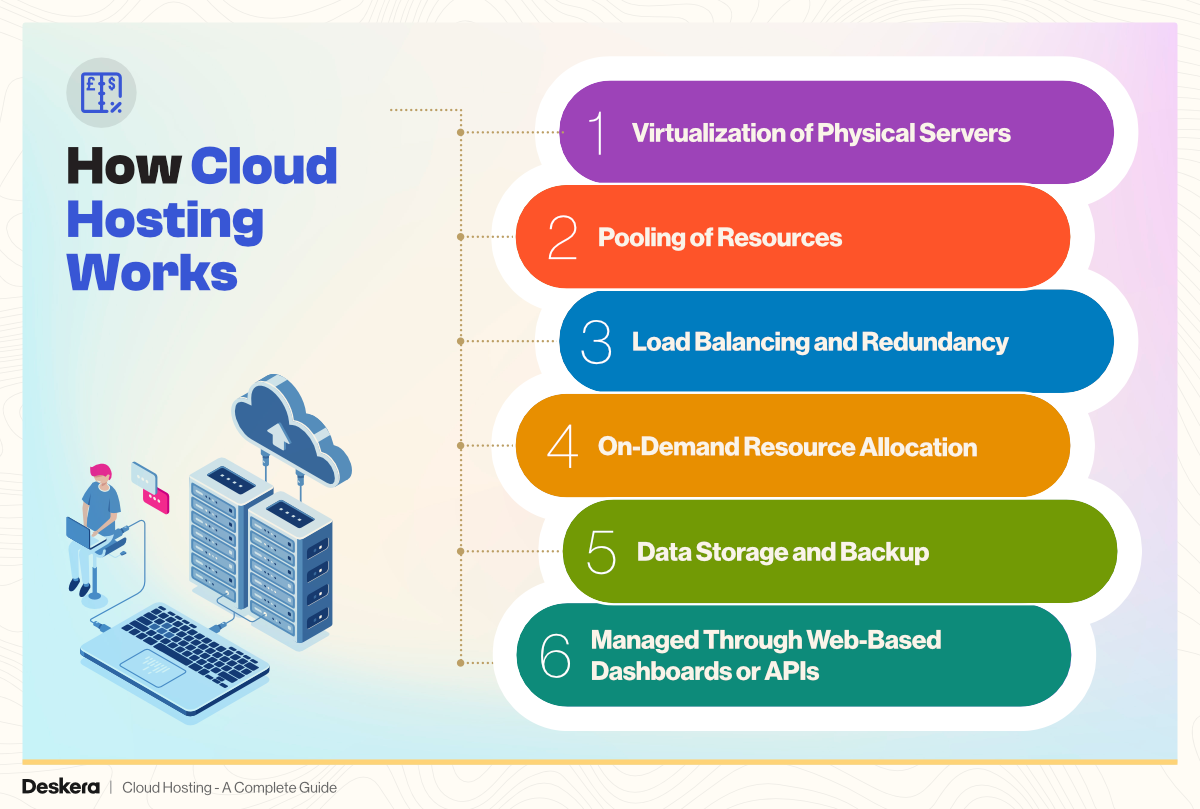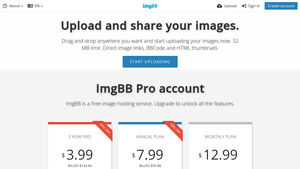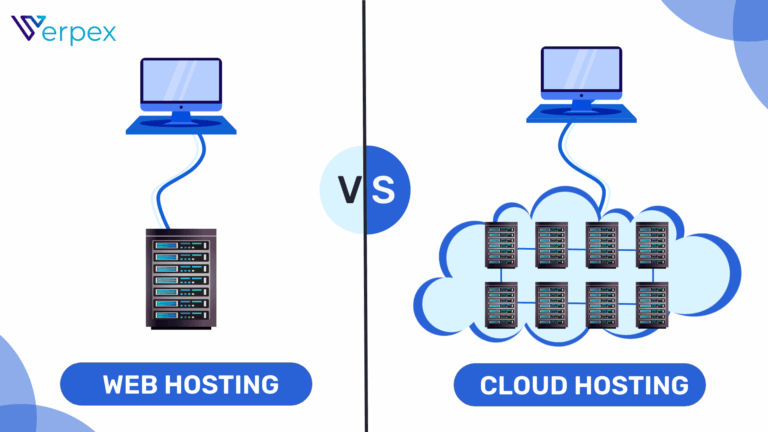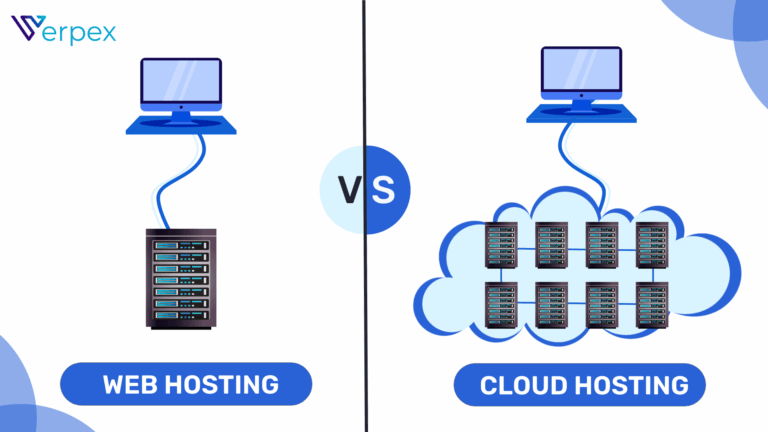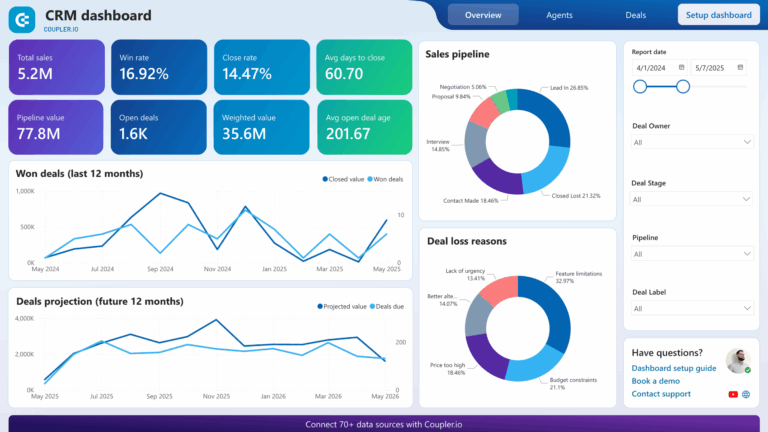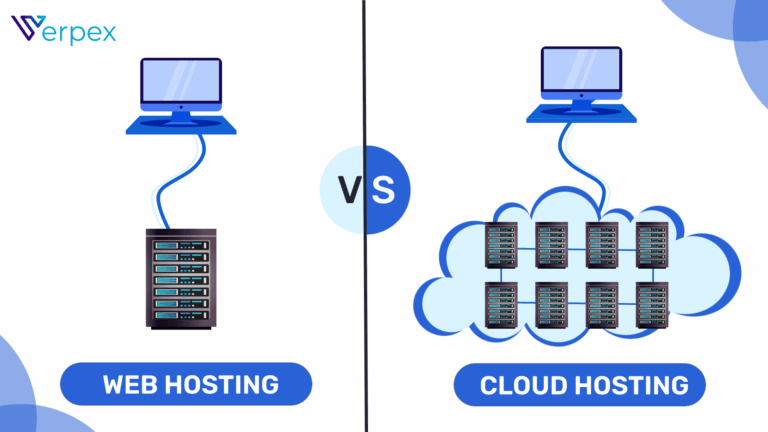Choosing a Pic Hosting Provider: Our Top Picks for 2025
Choosing Your Digital Home: An Introduction to Web Hosting
When embarking on the journey of establishing an online presence, whether for a small business, a personal blog, or a development project, selecting the right web hosting service is a critical foundation for success. The web hosting landscape is vast and can often seem overwhelming due to the plethora of options available. Each hosting provider offers various plans, features, and types of hosting, making it challenging for newcomers to discern which service best meets their needs.
Many users find themselves grappling with fundamental questions: What is shared hosting? How does VPS differ from dedicated hosting? Should I choose a managed WordPress host or a general-purpose provider? These questions are vital, as the choice of hosting can significantly impact your website’s performance, security, and scalability. A poor hosting decision can lead to slow load times, downtime, and ultimately, a negative user experience that could deter visitors from returning.
This guide aims to be your one-stop resource for understanding the intricacies of web hosting. We will break down the various types of hosting available, including shared, VPS, dedicated, and cloud hosting, providing insights into their respective advantages and disadvantages. Furthermore, we will delve into the features that matter most, such as uptime guarantees, customer support, scalability options, and security measures, allowing you to make an informed choice.
In addition to exploring hosting types, this guide will compare some of the top web hosting providers in the industry, highlighting their strengths and weaknesses. Whether you prioritize affordability, performance, or specialized features, our comparisons will help you pinpoint the best fit for your specific needs.
By the end of this guide, you will have a clear understanding of web hosting and the factors to consider when making your selection. Armed with this knowledge, you can confidently choose a hosting provider that not only supports your current requirements but also grows with you as your online presence expands. Let’s begin this journey toward finding your ideal digital home.
The Best Pic Hosting Providers of 2025
1. ImgBB – Your Go-To for Free and Easy Image Hosting!
ImgBB is a user-friendly, free image hosting service designed for individuals and businesses looking to quickly upload and share images online. With a generous 32 MB upload limit, users can easily drag and drop files for instant sharing. ImgBB provides direct image links, as well as BBCode and HTML thumbnail options, making it an ideal choice for bloggers, social media users, and web developers seeking seamless image integration.
- Website: imgbb.com
- Company Age: Approx. 11 years (domain registered in 2014)
5. Top Image Hosting Services of 2025 – Capture and Share with Ease!
In the ‘Best Image Hosting (2025)’ review by Web Hosting Cat, Dunked.com and SmugMug are highlighted as premier choices for professional photographers and dedicated enthusiasts. These platforms offer robust features tailored for showcasing high-quality images, including customizable galleries, seamless sharing options, and reliable performance. With a focus on user-friendly interfaces and excellent customer support, they cater specifically to those looking to elevate their photography portfolio online.
- Website: webhostingcat.com
- Company Age: Approx. 12 years (domain registered in 2013)
5. ImageShack – Your Ultimate Image Hosting Solution!
ImageShack is an ideal solution for users seeking reliable image hosting services, offering unlimited space for storing images and an intuitive uploader for seamless uploads. It caters to both casual users and professionals with features such as organized albums, efficient photo sharing, and dynamic image resizing for optimal viewing on web and mobile devices. This makes it a versatile choice for photographers, bloggers, and businesses looking to enhance their online presence through visual content.
- Website: imageshack.com
- Company Age: Approx. 23 years (domain registered in 2002)
What is Web Hosting? A Plain English Guide
When you decide to create a website, whether it’s for your small business, a personal blog, or a portfolio, you need a place to store all the files that make up your site. This is where web hosting comes into play. Think of web hosting like renting space for a house. Just as you need a physical location to live, your website needs a digital home on the internet.
What is Web Hosting?
Web hosting is a service that allows individuals and organizations to make their websites accessible on the internet. When you sign up for a web hosting service, you are renting space on a server (a powerful computer) that stores your website’s files, including images, text, and code. This server is connected to the internet 24/7, ensuring that your site is always available to visitors.
Imagine you are opening a coffee shop. You find a suitable location (the server) to set up your shop. You then fill that space with furniture, equipment, and products (your website files). Just as customers can visit your coffee shop whenever they like, people can access your website anytime through the internet.
What is a Server?
A server is a specialized computer designed to store, process, and manage data. In the context of web hosting, a server holds all the files associated with your website. When someone types your website’s address into their browser, the server retrieves your site’s files and sends them to the user’s device, allowing them to view your website.
Think of a server as a warehouse. Just as a warehouse stores products and ships them out when customers place orders, a server stores your website’s files and delivers them to users when they want to access your site. Servers come in different types, each suited for different needs, such as shared hosting (where multiple websites share the same server) or dedicated hosting (where one website has its own server).
How Do Domains and Hosting Connect?
A domain name is the address of your website (like www.yourwebsite.com). It’s what people type into their browser to visit your site. However, the domain name itself doesn’t contain any of your website’s content. Instead, it acts as a pointer that directs users to your web hosting server, where your files are stored.
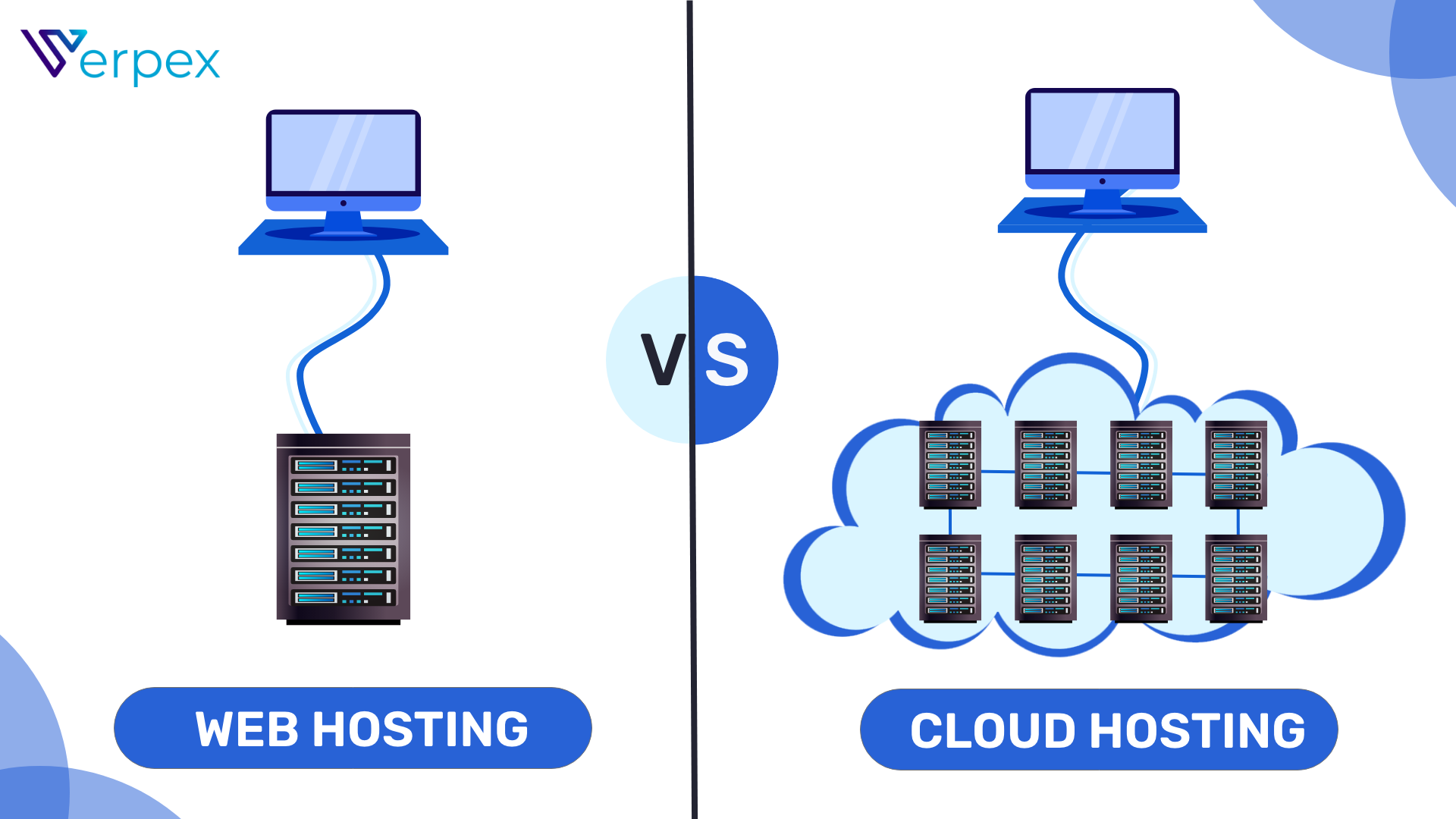
Using our coffee shop analogy again, the domain name is like the street address of your shop. Just as customers need the address to find your coffee shop, users need your domain name to locate your website on the internet. When you register a domain, you essentially secure that address, and when you set up hosting, you link that domain to the server where your site is stored. This connection is crucial for making your website accessible to anyone online.
Why Do I Need a Hosting Service?
Having a hosting service is essential for several reasons:
-
Accessibility: Without hosting, your website would be just a collection of files on your computer, inaccessible to anyone else. Hosting makes your site available on the internet, allowing visitors to view it anytime.
-
Performance: A good hosting service ensures that your website loads quickly and runs smoothly. This is critical for user experience; slow-loading sites can drive visitors away.
-
Security: Reliable hosting services offer security features to protect your website from cyber threats. This includes backups, firewalls, and SSL certificates that help secure data transmission.

-
Support: Most hosting services provide customer support to help you with any technical issues you might encounter. This can be invaluable, especially if you’re new to building websites.
-
Scalability: As your business grows, your hosting needs may change. A good hosting provider can offer scalable solutions, allowing you to upgrade your plan as your website gains more traffic.
In summary, web hosting is like renting a space for your website on the internet. It involves a server that stores your website’s files and makes them accessible to users through a domain name. Having a reliable hosting service is crucial for ensuring that your website is available, performs well, and remains secure. Whether you’re a small business owner, a blogger, or a developer, understanding web hosting is a vital step in creating a successful online presence.
Types of Web Hosting: A Detailed Comparison
| Hosting Type | Best For | Performance | Price Range | Key Pro | Key Con |
|---|---|---|---|---|---|
| Shared Hosting | Beginners, small websites | Moderate | $2 – $10/month | Cost-effective | Limited resources and control |
| VPS Hosting | Growing businesses, developers | High | $20 – $100/month | Greater control and customization | More expensive than shared hosting |
| Dedicated Server Hosting | Large websites, high-traffic sites | Very high | $80 – $500/month | Full server resources and control | High cost and maintenance required |
| Cloud Hosting | Scalability, fluctuating traffic | Variable (highly scalable) | $10 – $300/month | Flexibility and scalability | Potentially complex pricing |
| Managed WordPress Hosting | WordPress users, bloggers | High | $15 – $300/month | Optimized for WordPress performance | Limited to WordPress sites |
Shared Hosting
What It Is:
Shared hosting is a type of web hosting where multiple websites are hosted on a single server. Resources such as CPU, memory, and disk space are shared among all the websites on that server. This makes it the most cost-effective option for hosting a website.
Who Should Use It:
Shared hosting is ideal for beginners, small businesses, and personal blogs that do not require extensive resources. It is perfect for websites with low to moderate traffic and those looking to establish an online presence without incurring high costs.
Pros:
– Cost-Effective: Shared hosting plans are typically very affordable, making them accessible for startups and individuals.
– User-Friendly: Many shared hosting services offer easy-to-use control panels (like cPanel) that simplify website management.
– No Maintenance Required: The hosting provider manages the server, which means users do not need to worry about server maintenance or security updates.
Cons:
– Limited Resources: Since resources are shared, high traffic on one site can affect the performance of others on the same server.
– Limited Control: Users have less control over server settings and configurations compared to other hosting types.
– Security Risks: Shared environments can be less secure, as vulnerabilities in one website can potentially affect others.
VPS Hosting
What It Is:
Virtual Private Server (VPS) hosting is a step up from shared hosting. It involves partitioning a physical server into multiple virtual servers, each with its own dedicated resources. This allows for greater performance and customization.

Who Should Use It:
VPS hosting is suitable for growing businesses, developers, and websites that need more resources than what shared hosting can provide. It’s ideal for sites with moderate to high traffic, e-commerce platforms, and applications that require specific configurations.
Pros:
– Greater Control: Users have root access to their VPS, allowing for custom configurations and installations.
– Scalability: Resources can be upgraded easily as traffic grows without needing to migrate to a new server.
– Improved Performance: Since resources are dedicated to each VPS, performance is generally better than shared hosting.
Cons:
– Higher Cost: VPS hosting is more expensive than shared hosting, which may be a consideration for small businesses.
– Management Required: While some providers offer managed VPS hosting, many require users to handle server management and maintenance.
– Technical Knowledge Needed: Some technical expertise is often required to manage a VPS effectively.
Dedicated Server Hosting
What It Is:
Dedicated server hosting provides an entire server exclusively for one user or organization. This means all server resources are dedicated to a single website or application, offering maximum performance and security.
Who Should Use It:
Dedicated hosting is best for large businesses, high-traffic websites, and applications that demand high performance. It’s also suitable for organizations that require advanced security measures and complete control over their server environment.
Pros:
– Maximum Performance: With dedicated resources, websites can handle significant traffic without slowdowns.
– Full Control: Users have complete control over the server, including the operating system, hardware, and configurations.
– Enhanced Security: Dedicated servers are less susceptible to security risks associated with shared hosting environments.
Cons:
– High Cost: Dedicated hosting is the most expensive option, which may not be feasible for smaller businesses.
– Maintenance Responsibility: Users are responsible for server maintenance, updates, and security, unless they opt for a managed service.
– Requires Expertise: Managing a dedicated server often requires technical knowledge and expertise.
Cloud Hosting
What It Is:
Cloud hosting utilizes multiple servers to host websites, allowing for resource allocation based on demand. This means that when traffic spikes, additional resources can be allocated seamlessly, ensuring consistent performance.
Who Should Use It:
Cloud hosting is ideal for businesses with fluctuating traffic, such as e-commerce sites during sales events, startups expecting rapid growth, or any organization that needs high availability and flexibility.
Pros:
– Scalability: Resources can be scaled up or down easily based on traffic demands, which is beneficial for growing businesses.
– High Uptime: Cloud hosting typically offers high uptime rates due to the redundancy of multiple servers.
– Pay-As-You-Go Pricing: Many cloud hosting providers offer flexible pricing models, allowing users to pay only for the resources they consume.
Cons:
– Complex Pricing Structure: The pricing can be complicated, making it difficult for users to estimate monthly costs.
– Potential for Overuse: Without careful monitoring, businesses can accidentally incur high costs if they do not manage their resource usage.
– Variable Performance: Performance can vary based on the cloud infrastructure and the provider’s management of resources.
Managed WordPress Hosting
What It Is:
Managed WordPress hosting is a specialized hosting service designed specifically for WordPress sites. This type of hosting includes features such as automatic updates, enhanced security, and WordPress-specific optimizations.
Who Should Use It:
Managed WordPress hosting is perfect for bloggers, small businesses, and organizations that use WordPress and want a hassle-free hosting experience. It is especially beneficial for users who may not have technical expertise but want to ensure their site runs efficiently.
Pros:
– Optimized for WordPress: Managed hosting providers optimize their servers for WordPress, improving performance and speed.
– Automatic Updates and Backups: Regular updates and backups are typically included, reducing the risk of data loss.
– Enhanced Security Features: Managed WordPress hosting often includes additional security measures, such as malware scanning and firewall protection.
Cons:
– Higher Cost: Managed WordPress hosting can be more expensive than standard shared hosting plans.
– Limited to WordPress: This type of hosting is specifically for WordPress sites, which means it isn’t suitable for other types of websites.
– Less Flexibility: Users may have limited control over certain server configurations compared to VPS or dedicated hosting.
In conclusion, choosing the right type of web hosting depends on your specific needs, budget, and technical expertise. By understanding the differences and characteristics of each type of hosting, you can make an informed decision that aligns with your website goals.
How to Choose a Hosting Provider: A 5-Point Buyer’s Guide
Performance and Uptime
When selecting a web hosting provider, performance and uptime are critical factors to consider. Uptime refers to the percentage of time your website is operational and accessible to users. A hosting provider should guarantee at least 99.9% uptime, which translates to minimal downtime and ensures that your website remains online.
Why Performance Matters
Website performance affects user experience, search engine rankings, and ultimately, your bottom line. If your site is slow to load, visitors are likely to leave before it fully appears. A poor-performing site can negatively impact your credibility and lead to lost sales, particularly for e-commerce businesses.
What to Look For
-
Uptime Guarantee: Look for providers that offer a clear uptime guarantee in their service level agreement (SLA). Ideally, it should be at least 99.9%.
-
Speed Tests: Research third-party reviews and performance tests to gauge the speed of the hosting provider’s servers. Tools like GTmetrix or Pingdom can provide insights into load times.
-
Content Delivery Network (CDN): A CDN can significantly improve site speed by caching content closer to your visitors’ geographical locations. Check if the hosting provider offers CDN integration.
-
Server Resources: Evaluate the server resources allocated to your plan. More CPU, RAM, and storage can enhance performance, especially during traffic spikes.
Customer Support
Reliable customer support is an essential aspect of web hosting. As a small business owner or blogger, you may not have the technical expertise to resolve every issue that arises. Therefore, having access to knowledgeable support can save you time and headaches.
Why Customer Support Matters
Technical issues can occur at any time, and resolving them quickly is crucial to maintaining your website’s functionality. Good customer support ensures that you have assistance available when you need it, minimizing downtime and frustration.
What to Look For
-
Availability: Check if the support team is available 24/7 via multiple channels, such as live chat, phone, and email. Some providers may offer ticket systems that can be slower to resolve issues.
-
Response Time: Look for reviews that mention the average response time for support queries. Fast response times indicate a commitment to customer service.
-
Knowledge Base: A comprehensive knowledge base or help center can empower you to find solutions independently. Look for tutorials, FAQs, and community forums.
-
Expertise: Ensure that the support staff is well-trained and knowledgeable about the hosting environment. Some providers may offer specialized support for specific platforms (e.g., WordPress).
Pricing and Renewal Rates
Understanding the pricing structure is crucial when choosing a hosting provider. While introductory rates may be appealing, you should also consider renewal rates and any additional costs that may arise.
Why Pricing Matters
Transparent pricing helps you budget effectively for your website’s ongoing costs. Unexpected price hikes upon renewal can strain your finances and affect your decision to continue with a provider.
What to Look For
-
Introductory vs. Renewal Pricing: Always check how much the service will cost after the initial promotional period. Some providers significantly increase rates upon renewal.
-
Hidden Fees: Look for any hidden fees for services such as domain registration, backups, or SSL certificates. Understanding the total cost of ownership is essential.
-
Payment Options: Consider providers that offer flexible payment plans. Monthly, yearly, or multi-year plans can provide cost savings, depending on your budget.
-
Money-Back Guarantee: A money-back guarantee allows you to test the service risk-free. Look for a provider that offers at least a 30-day money-back guarantee.
Security Features (SSL, Backups)
In today’s digital landscape, security is non-negotiable. A good hosting provider should offer robust security features to protect your website from cyber threats.
Why Security Matters
Data breaches and cyberattacks can lead to severe repercussions, including loss of sensitive information, damage to your reputation, and financial loss. Security features help safeguard your website and provide peace of mind.
What to Look For
-
SSL Certificates: Ensure that the hosting provider offers SSL certificates, which encrypt data transmitted between your website and its visitors. This is especially important for e-commerce sites.
-
Regular Backups: Look for automated backup solutions that protect your data. Regular backups ensure you can quickly restore your site in case of data loss or corruption.
-
Malware Scanning and Removal: Security features should include malware scanning and removal tools to identify and eliminate threats proactively.
-
Firewall Protection: A web application firewall (WAF) can help protect your site from attacks by filtering and monitoring HTTP traffic. Check if the provider includes this feature.
Scalability and Future Growth
As your business grows, so too will your website’s needs. Choosing a hosting provider that offers scalability is vital for accommodating future growth without migrating to a new provider.
Why Scalability Matters
A scalable hosting solution allows you to easily upgrade your resources (such as bandwidth, storage, or server type) as your traffic increases or your business expands. This flexibility can save time and reduce costs in the long run.
What to Look For
-
Upgrade Options: Review the available plans and upgrades. Can you easily switch from shared hosting to VPS or dedicated hosting as your needs change?
-
Resource Allocation: Ensure the provider offers plans that can accommodate increased traffic and resource demands without major downtime or migration hassles.
-
Performance Under Load: Research how the hosting provider handles traffic spikes. Look for features such as load balancing that can distribute traffic efficiently.
-
Long-term Contracts: Be cautious of long-term contracts that may lock you into a plan that doesn’t fit your needs as your website grows. Opt for providers that offer flexibility in plan adjustments.
Conclusion
Choosing the right hosting provider is crucial for the success of your website. By evaluating performance and uptime, customer support, pricing and renewal rates, security features, and scalability, you can make an informed decision that aligns with your business goals. Take the time to research and consider your specific needs, and you’ll set yourself up for a successful online presence.
Key Hosting Terms and Jargon Explained
cPanel
cPanel is a web-based control panel that simplifies the management of web hosting accounts. It provides a graphical interface and automation tools designed to make it easier for users to manage their websites, databases, and email accounts. cPanel allows users to perform various tasks, such as:
- Managing Files: Upload, delete, and organize files on your web server.
- Database Management: Create and manage MySQL databases.
- Email Accounts: Set up and manage email accounts associated with your domain.
- Domain Management: Manage subdomains, parked domains, and domain redirects.
- Security Features: Set up SSL certificates, password-protect directories, and manage IP address denials.
Overall, cPanel streamlines the hosting experience, making it accessible for beginners and efficient for advanced users.
SSL Certificate
An SSL (Secure Sockets Layer) certificate is a digital certificate that encrypts data transmitted between a user’s web browser and a website’s server. This encryption ensures that sensitive information, such as login credentials and credit card details, remains private and secure. Key points about SSL certificates include:
- Trust Indicator: Websites with SSL certificates display a padlock icon in the browser address bar, indicating a secure connection. This can enhance customer trust and improve conversion rates.
- SEO Benefits: Search engines like Google prioritize secure websites in their rankings, meaning that having an SSL certificate can positively impact your site’s visibility.
- Types of SSL Certificates: There are different types of SSL certificates available, including single-domain, multi-domain, and wildcard certificates, catering to various needs depending on the number of domains and subdomains you wish to secure.
Bandwidth and Data Transfer
Bandwidth refers to the maximum amount of data that can be transmitted over an internet connection in a given period, typically measured in bits per second (bps). In the context of web hosting, it relates to the amount of data your website can send and receive over the internet. Data transfer, on the other hand, refers to the total amount of data transferred to and from your website during a specific period, usually a month. Here are important aspects to consider:
- Monthly Limits: Many hosting providers set limits on bandwidth or data transfer. Exceeding these limits may result in additional charges or throttled speeds.
- Impacts on Performance: Higher bandwidth allows for more simultaneous visitors to your site without slowdowns. Conversely, low bandwidth can lead to slow loading times and a poor user experience.
- Types of Bandwidth: Some hosting plans offer “unmetered” bandwidth, meaning you can use as much bandwidth as you need, though this may be subject to fair usage policies.
Storage (SSD vs. HDD)
Storage refers to the space available on a server to store your website’s files, databases, and other content. The type of storage used can significantly affect your website’s performance. Two common types of storage are:
- HDD (Hard Disk Drive): Traditional storage technology that uses spinning disks to read and write data. While HDDs are typically cheaper and offer larger storage capacities, they are slower in performance compared to SSDs.
- SSD (Solid State Drive): A newer storage technology that uses flash memory to store data, resulting in faster read and write speeds. SSDs provide quicker loading times, improved performance, and enhanced reliability, making them ideal for high-traffic websites.
When selecting a web hosting plan, consider the storage type as it can impact your site’s speed and overall user experience.
Domain Name System (DNS)
The Domain Name System (DNS) is a hierarchical system that translates human-friendly domain names (like www.example.com) into IP addresses (like 192.0.2.1) that computers use to identify each other on the network. Key components of DNS include:
- Domain Name: The address of your website that users type into their browser.
- DNS Records: Various types of records (A, CNAME, MX, etc.) that define how domain names are resolved into IP addresses and how email is handled.
- Nameservers: Servers that store DNS records and respond to queries about domain names, directing traffic to the appropriate IP address.
Understanding DNS is crucial for configuring your website correctly, setting up email, and managing subdomains.
Uptime
Uptime refers to the amount of time a web hosting service is operational and accessible to users. It is typically expressed as a percentage over a specific period (usually a month or year). For example, a hosting provider that boasts a 99.9% uptime guarantee means that their servers are expected to be operational for 99.9% of the time. Here are some points to consider regarding uptime:
- Importance: High uptime is essential for maintaining a reliable online presence. Downtime can lead to lost revenue, decreased user trust, and negative impacts on SEO.
- Monitoring: Many hosting providers offer uptime monitoring services to alert you if your site goes down, allowing you to respond quickly to issues.
- Service Level Agreements (SLAs): Some providers include uptime guarantees in their SLAs, which may offer compensation (such as service credits) if they fail to meet their promised uptime percentage.
In summary, understanding these key hosting terms can help you make informed decisions when selecting a web hosting service that best suits your needs. Whether you’re running a small business, a blog, or a development project, having a solid grasp of these concepts is essential for managing your online presence effectively.
Frequently Asked Questions (FAQs)
1. What is image hosting?
Image hosting is a service that allows users to upload, store, and share images on a remote server. This service provides a way to manage and organize images, making them accessible via direct links or embedded codes for use on websites and social media platforms.
2. Can I host my own images on my website?
Yes, you can host your own images on your website if you have access to a web server. This involves uploading images to your server and linking them in your website’s code. However, this can consume your web storage and bandwidth, potentially slowing down your site. Using a dedicated image hosting service can optimize loading times and free up server resources.
3. How much should I pay for image hosting?
The cost of image hosting varies based on your needs. Many platforms offer free plans with limited storage, while paid plans can range from $5 to $30 per month or more, depending on features like storage space, bandwidth, security, and additional tools. Consider your usage requirements and budget before selecting a plan.
4. What’s the difference between a domain and hosting?
A domain is your website’s address on the internet (e.g., www.example.com), while hosting refers to the service that stores your website’s files and makes them accessible online. In essence, the domain is the name, and hosting is the space where your website resides.
5. What types of files can I host with image hosting services?
Most image hosting services support common file formats such as JPG, PNG, GIF, and BMP. Some platforms may also allow other formats, including PDF and video files. Always check the specific service’s guidelines for supported file types.
6. How do I choose the best image hosting service for my needs?
When selecting an image hosting service, consider the following factors:
– Storage Space: Determine how much storage you will need for your images.
– Ease of Use: Look for a user-friendly interface that simplifies uploading and managing images.
– Security Features: Ensure the service provides adequate security measures, such as encryption and backup options.
– Editing Tools: Some platforms offer built-in editing features, which can be useful for quick adjustments.
– Cost: Compare pricing plans and determine what features you need versus what you’re willing to pay.
7. Can I access my images from anywhere?
Yes, most image hosting services allow you to access your images from any device with internet connectivity. This makes it easy to share and embed images on various platforms without being tied to a specific computer or location.
8. Is my data safe with image hosting services?
The safety of your data depends on the image hosting service you choose. Look for services that offer strong security measures, such as data encryption, regular backups, and compliance with privacy regulations. Always read user reviews and research the service’s reputation regarding data security before committing.
Conclusion: Making Your Final Decision
Understanding Your Unique Needs
Choosing the right web hosting service is a crucial step in establishing your online presence, whether you’re a small business owner, blogger, or developer. The “best” hosting solution will vary significantly based on your specific needs, including your budget, expected traffic, and technical skills. For instance, a simple blog may thrive on a shared hosting plan, while a growing e-commerce site might require a more robust VPS or dedicated server.
Key Factors to Consider
When evaluating potential hosting providers, several critical factors should guide your decision:
-
Support: Reliable customer support is essential. Opt for a host that offers 24/7 support through various channels, including live chat, email, and phone. This ensures you can get help whenever you need it, especially during critical times.
-
Uptime: A host with high uptime guarantees (99.9% or better) will keep your site accessible to visitors. Downtime can lead to lost revenue and a damaged reputation, making this a non-negotiable aspect of your hosting choice.
-
Scalability: As your website grows, your hosting needs may change. Look for providers that offer scalable solutions, allowing you to upgrade your plan easily without significant downtime or migration hassles.
Take the Next Step with Confidence
With these considerations in mind, you’re well-equipped to make an informed decision about your web hosting needs. Take the time to assess your requirements and research potential providers. Remember, the right hosting solution is out there waiting for you. Whether you choose to prioritize affordability, performance, or customer service, the most important thing is to start your project with confidence. Your online journey begins now—embrace it and watch your vision come to life!
Important Disclaimer
⚠️ Important Disclaimer
The information and reviews in this guide are for educational purposes, based on publicly available data and our own analysis. We are not affiliated with any hosting providers mentioned. Features, pricing, and performance change frequently. Always conduct your own research and check the provider’s official website before making a purchase.
